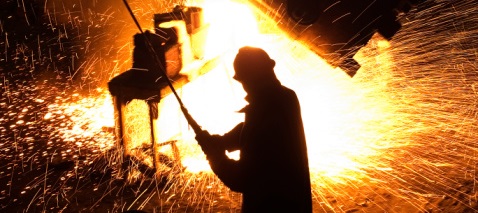Brexit race to the bottom?
Working people in both the EU and the UK – especially those in low-skilled jobs – could have their working rights eroded after Brexit, new TUC research shows.
The report, conducted on behalf of the TUC by the Work Foundation, reviewed evidence on the relationship between labour standards and foreign direct investment (FDI) and investigated a range of potential consequences for working people in Britain and the EU after Brexit.
It found that better labour standards can help attract foreign investment, particularly in high-end sectors, creating a “race to the top” for high-pay high-productivity jobs.
However, it also found that for low-pay and low-productivity sectors, there are real risks of a “race to the bottom” if countries seek to compete by cutting workers’ protections.
The Chancellor has threatened to change the UK to a deregulated tax haven if a post-Brexit deal with the EU is not reached. This raises the risk that Britain may cut protections for people at work.
The study suggests that this would lead to pressure on EU nations from multinationals to reduce working people’s rights in order to compete for low-skilled jobs.
TUC General Secretary Frances O’Grady said, “If we don’t put strong protections for working people at the heart of our deal with the EU, Britain could become a bargain basement economy. And this will worry the EU too, as it could drive damaging competition that increases inequality.
“We’ve already seen the emergence of a low-skill, low-productivity economy that leaves many people trapped in dead-end jobs. Scrapping workplace protections, or gradually falling behind our European neighbours, would increase this trend.”
O’Grady added, “The next government must get a deal with Europe that protects current rights, like paid holidays, equal pay, and fairness for agency workers. And it must guarantee a level playing field with the rest of Europe now and in the future, so working people in Britain don’t fall behind our European neighbours.”
Unite general secretary Len McCluskey seconded O’Grady’s call. He also pointed out the UK workers need to maintain a strong presence on European Works Councils (EWC), which represent employees in multinational European companies, to help prevent a “race to the bottom” after Brexit.
“The UK is leaving the European Union but it is not free-wheeling, cross-border capitalism that is under threat – it is the social and employment protections guaranteed by the EU that most certainly are. And if they can be destroyed by a â€tax haven UK’ on this side of the Channel, this will soon destroy labour standards on the other side, too,” McCluskey said.
“That is why we must retain our strong UK presence on the EWCs. We need to be at the table when decisions on jobs and investment are being made by some of the biggest employers on the planet. We must be allowed to fight the corner for UK workers.”
He added, “So I appeal to UK employers then: do not prevent our representatives discharging their duties. Let them continue to attend the EWC meetings so that the voice of UK industries and workers is heard.”
 Like
Like Follow
Follow


